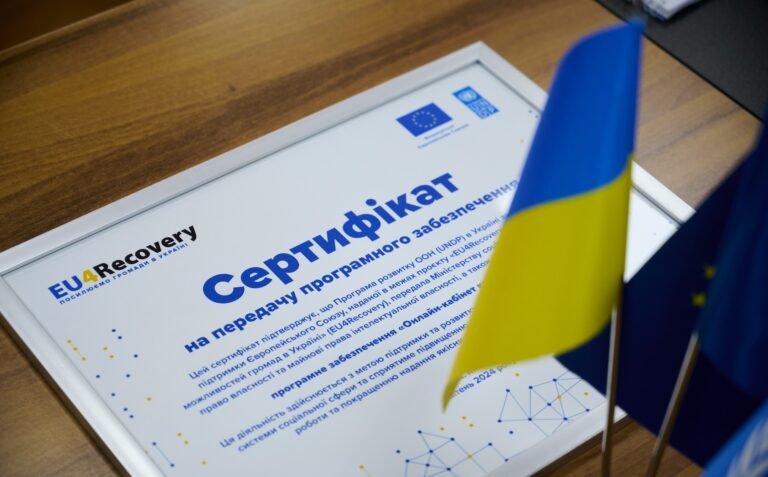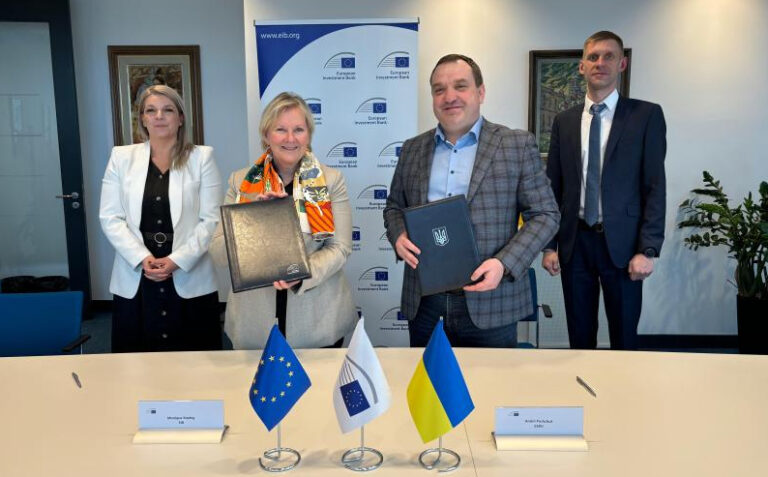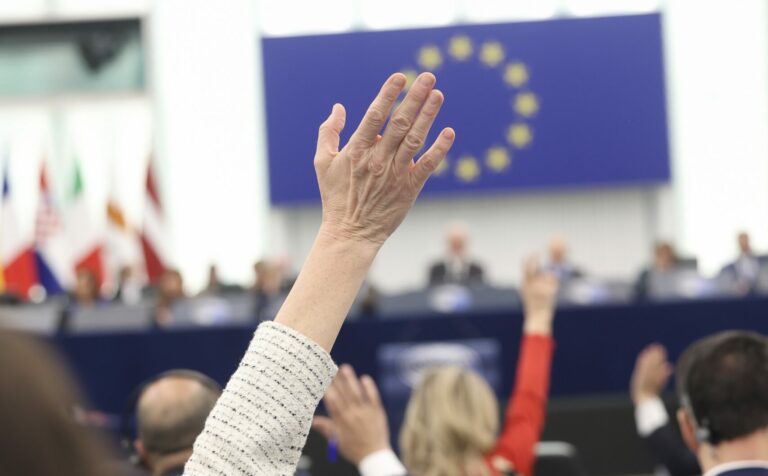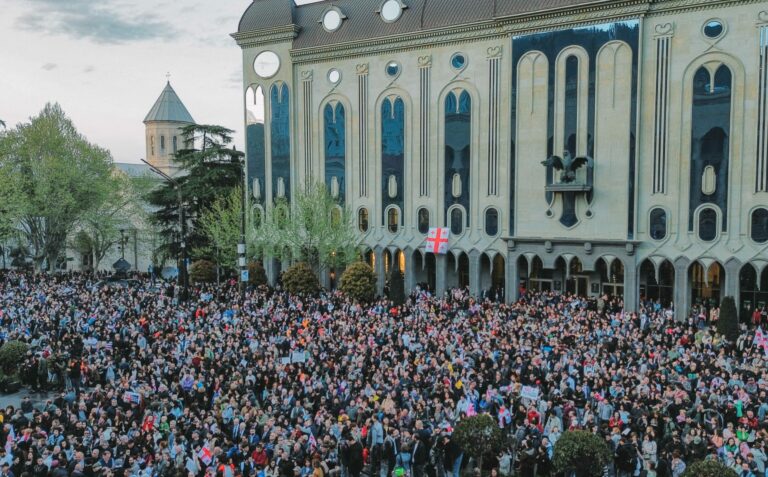
EU4Youth Programme facilitates cooperation of Public Employment Services of EaP and EU countries
On 10 October, representatives of the Eastern Partnership (EaP) countries and the public employment services of the European Union (EU) Member States gathered for the first EaP Public Employment Services Network event organised as part of the EU4YOUTH DAYS. The idea of the event was to bring together representatives of Public Employment Services (PES) of EaP countries and to discuss the benefits of cooperation among PES of the EaP and the PES of the EU countries.
EaP countries face the challenge of considerable unemployment rates and a significant mismatch between the demand of the labour market and the competences and educational skills of young people. Public Employment Services have a complex task to develop an effective system of collaboration with business sector, NGOs and other organisations and to provide career counselling, re-qualification and other instruments for young people, especially disadvantaged youth.
To some extent these challenges are common for European countries. Though the rates of unemployment, especially of young people, are considerably higher than in other European countries. Therefore, the experience and best practices of the EU countries PES can bring a valuable input to the developments in EaP countries.
Elodie Fazi, Team Leader of the PES Network Secretariat, Directorate-General for Employment, Social Affairs and Inclusion (DG EMPL), in her address to all participants, noted that role of PES as crucial labour market conductors is growing significantly as well as the importance of their networking is increasing because of the fast-changing labour market ecosystems. She shared EU PES network priorities for the nearest future: effective response to crisis and supporting recovery, greening the labour market, digitalisation, modernisation of PES service delivery, strengthening PES partnerships.
“EU PES network is an effective platform for bringing and discussing ideas, best practices, challenges and looking for innovative solutions and new initiatives. Although challenges within the EU and outside the EU sometimes differ, but there are a lot of challenges that could be solved together in a strong partnership,” concluded Fazi.
Thomas Hainlen, Team Leader of EU4Youth: Youth Employment and Entrepreneurship programme’s technical assistance component, welcomed participants of the round table by highlighting: “This is the first networking event, which aims at creating tangible partnerships among players of the employment sector. We believe that this initiative of “getting together” builds an important basis for facilitation of closer cooperation of respective institutions and strengthens the motivation to look for effective solutions facilitating youth employment.”
It was followed by the identification of specific benefits of networking and success stories, presented by Inga Balnanosiene, Head of the Public Employment Service of Lithuania. She presented the fact that due to the support and opportunities that Baltic PES Network and the EU PES Network provide, the Lithuanian PES clients’ satisfaction increased from around 50% to more than 70% in two years.
“By adapting the best practices of other countries, such as reshaping service delivery to a better staff-to-clients ratio, relocating resources from management to a direct frontline service, separation of jobseekers and employers counselling we have achieved considerable increase of client satisfaction,” noted Balnanosiene.
She stressed that PES Network is not about indicators and procedures, but it is about trust and willingness to search for the best solution together. “PES as a public organisation can grow learning from others,” concluded Balnanosiene.
The most important outcome of the event is the common consent on the necessity to foster cooperation in particular areas by establishing networking among EaP PES and with the EU PESs. “Provided examples of successful partnerships and positive changes of PES and their services in EU countries induce us to create a sustainable framework for our cooperation and exchange of experiences and ideas,” stated Nino Veltauri, Director, Employment Support State Agency of Georgia.
“It is a great chance for us to induce positive changes in youth employment policy by facilitating strong partnerships between PES and providing specific instruments for development of institutional capacities and fostering young people’s opportunities in labour market. The establishment of a sustainable EaP countries’ PES Network on the example of the Baltic PES Network and the EU PES Network is one of our goals, that will significantly contribute to the overall objectives of our Programme,” summarised Thomas Hainlen, Team Leader of ‘EU4Youth: Youth Employment and Entrepreneurship’ programme’s technical assistance component.
The EU4Youth Phase III Youth Employment and Entrepreneurship programme is co-financed by the European Union and the Ministry of Foreign Affairs of Lithuania. The initiative is implemented by the Central Project Management Agency (CPMA) in Eastern Partnership countries (Armenia, Azerbaijan, Belarus, Georgia, Moldova, and Ukraine) until the end of 2024 and comprises technical assistance activities to support organisational structures and institutions (governmental and non-governmental) addressing youth employment and employability.
Find out more
MOST READ
SEE ALSO

EU and UNDP transfer unified electronic case management system software to Ukraine

EIB and Ukraine reinforce safeguards for EU bank’s investments in the country

Chornobyl Nuclear Disaster Anniversary: ‘Let us never forget the past to safeguard our future,’ says EU

European Parliament urges Azerbaijan to immediately and unconditionally release Ilhamiz Guliyev and other political prisoners

Borrell urges Georgian political leaders to withdraw draft law on foreign influence
More campaign pages:
Interested in the latest news and opportunities?
This website is managed by the EU-funded Regional Communication Programme for the Eastern Neighbourhood ('EU NEIGHBOURS east’), which complements and supports the communication of the Delegations of the European Union in the Eastern partner countries, and works under the guidance of the European Commission’s Directorate-General for Neighbourhood Policy and Enlargement Negotiations, and the European External Action Service. EU NEIGHBOURS east is implemented by a GOPA PACE-led consortium. It is part of the larger Neighbourhood Communication Programme (2020-2024) for the EU's Eastern and Southern Neighbourhood, which also includes 'EU NEIGHBOURS south’ project that runs the EU Neighbours portal.

The information on this site is subject to a Disclaimer and Protection of personal data. © European Union,







